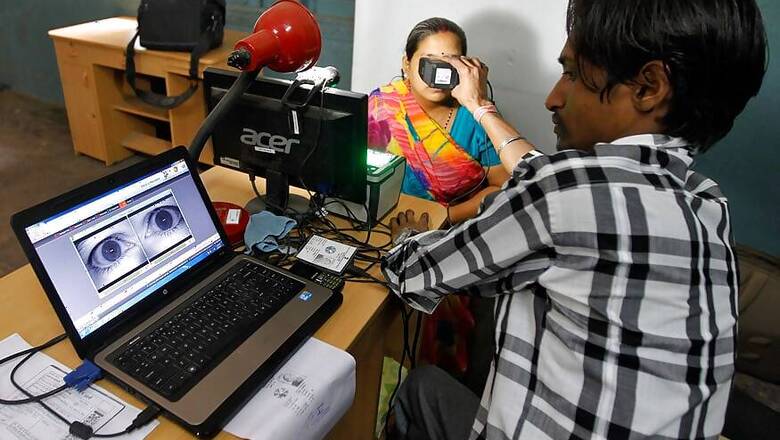
views
New Delhi: Right to privacy is a fundamental right guaranteed under Article 21 of the Indian Constitution, a nine-judge Constitution bench of the Supreme Court said on Thursday in a historic ruling. This judgment will now have an impact on the Aadhaar validity case and on Section 377 which criminalises homosexuality.
The Right to Privacy verdict now means intimate details regarding marriage, sexuality and relation with family are protected. Private details such as parting of personal data by use of credit card, social network platforms, I-T declarations are protected. All public details, where privacy protection requires minimal regulation, are also protected.
Aadhaar – The Supreme Court had made a deliberate attempt to divorce the issue of fundamental right to privacy from the constitutional challenge to Aadhaar, but the ruling on whether Right to Privacy is a fundamental right under Article 21 or not will still have a direct bearing on the Aadhaar case. Firstly, the contention of the petitioners that when a citizen gives his biometrics and personal details to the government and when in turn it is used by commercial organizations, it is a breach of privacy.
The landmark verdict has bolstered the proposition of the petitioners. Petitioners had also apprised the court during the hearings about the leak of Aadhaar numbers and how fingerprints can be easily reproduced which may enable theft, etc. However, since this case has no relation to the Aadhaar case, an independent verdict on Right to Privacy will weigh in heavily to determine whether at all Aadhaar stands the test of constitutional scrutiny or not.
The Constitution bench on Thursday did not say anything categorical on biometrics for Aadhaar.
Naz Foundation verdict – The top court in this case had held that Section 377 of the Indian Penal Code discriminated against a particular section of individuals in the society on the basis of sexual orientation and condemned Section 377. However, it did not strike down the provision and stated that it was not the role of judiciary to do so and was the job of the Parliament.
In this case, the apex court laid down three categories under which the term ‘privacy’ must fall for an individual to avail the said right. The court stated that the personal liberty of a person must satisfy a triple test which is:
(i) It must prescribe a procedure;
(ii) The procedure must withstand a test of one or more of the fundamental rights conferred under Article 19 which may be applicable in a given situation; and
(iii) It must also be liable to be tested with reference to Article 14.
Now that Right to Privacy is upheld, the verdict on LGBT rights will be susceptible to being challenged.
DNA Profiling Bill – The first DNA Profiling Bill was prepared in 2007 and has since then undergone a lot of changes. The latest is the “Use and Regulation of DNA Based Technology Bill, 2017.”
The biggest concern regarding this bill is that it has left the task of defining of privacy and security safeguards to regulation which includes implementation and sufficiency of protection, appropriate use and dissemination of DNA information, accuracy, security and confidentiality of DNA information, timely removal and deletion of obsolete or inaccurate DNA information, and other steps as necessary.
DNA is not foolproof and false matches can take place for multiple reasons. Here, the privacy concerns arise and now that the Supreme Court has upheld Right to Privacy, chances of the bill being shelved is high unless all privacy and safety regulations are taken into account. Especially, when something concerns a bodily right such as the DNA of an individual, he would reserve the ultimate to invoke the breach of right to privacy as a fundamental right.




















Comments
0 comment